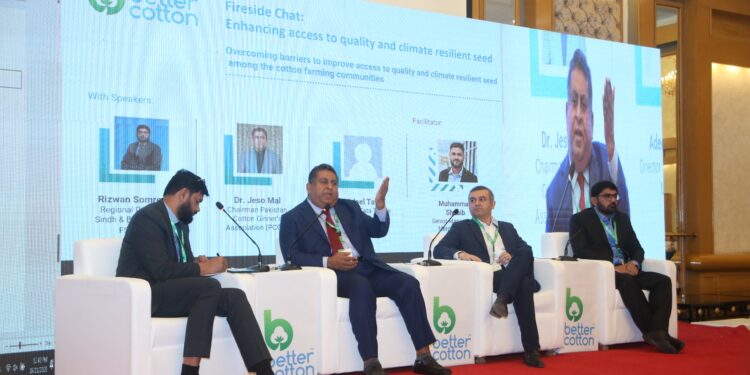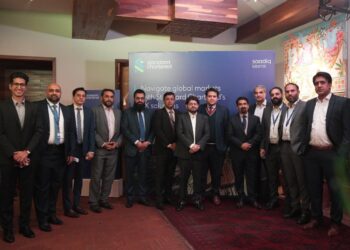Karachi; Better Cotton (BC), in collaboration with the Pakistan Central Cotton Committee (PCCC), successfully organized the National Conference on Cotton Revival: The White Gold of Pakistan—From Challenges to Opportunities at the Marriott Hotel, Karachi. The conference gathered key stakeholders, including government representatives, policymakers, academia, research institutions, and private sector organizations, to address the decline in cotton production and explore strategies to revitalize the sector.
Pakistan’s cotton and textile industry plays a crucial role in the country’s economy, driving exports, value addition, employment, and the livelihoods of millions of households. The conference focused particularly on Sindh and Balochistan, highlighting their significance in cotton cultivation. More than 100 participants, including parliamentary leaders, technocrats, industry experts, and representatives from APTMA, PCGA, the seed sector, and Better Cotton’s program partners such as WWF, CABI, REEDS, and SWRDO, attended the event.
Opening the conference, Mr. Iain Gardiner, Senior Director of Development and Impact at Better Cotton, stressed the need for a forward-thinking and sustainable approach to cotton production. Dr. Zulfiqar Ali Bhatti, Parliamentary Secretary, Ministry of Commerce, reaffirmed the federal government’s commitment to cotton revival, highlighting policy frameworks and initiatives for crop traceability. Maj. Gen. Shahid Nazir (R), HI (M), Director General, Green Pakistan Initiative (GPI), discussed solutions such as restructuring the PCCC, announcing an indicative price for cotton, and abolishing the 18% sales tax on local production.
Mr. Muhammad Bux Khan Mahar, Minister of Agriculture, Sindh, emphasized the importance of cotton revival for economic growth, highlighting government initiatives like the “Grow More Cotton” campaign and subsidies for modern irrigation methods. Mr. Noor Ahmad Pirkani, Secretary of Agriculture, Balochistan, underscored the province’s potential as an emerging cotton hub while noting key challenges such as water scarcity and limited access to certified seeds. Dr. Yusuf Zafar, Vice President of PCCC, analyzed the reasons behind declining cotton production and stressed the need for heat-resistant seeds and contract farming to support growers.
Experts and panelists from WWF, CABI, Soorti Enterprises, Lasbela University, TASSCO Seed Company, and the Sindh Abadgar Association shared success stories and strategies for improving Pakistan’s cotton sector. The conference concluded with a collective vision to restore cotton production to at least 15 million bales, a level last achieved in 2015.

























